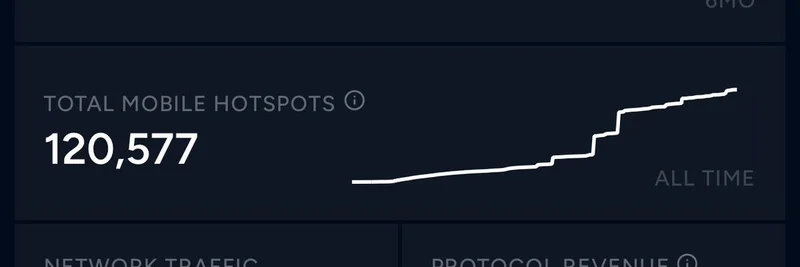In the wild world of cryptocurrencies, where meme tokens often steal the spotlight with their viral hype, there's a quieter player that's all about keeping things under wraps: Monero (XMR). Recently, BSCNews dropped a comprehensive guide on Monero, asking the big question – is the era of privacy coins fading, or is there a bright future ahead? As someone who's navigated the crypto seas from CoinDesk to Meme Insider, I'm here to break it down for you in plain English. We'll cover what Monero is, its backstory, how it ticks, the good and the bad, and what might be coming next. Even if you're deep into meme tokens, understanding privacy tech like this can help protect your trades and keep your wallet moves anonymous.
The Origins of Monero: From Fork to Privacy Powerhouse
Monero didn't just appear out of thin air; its roots go back to 2012 with something called the CryptoNote protocol. This was first used in Bytecoin, but there was drama – developers had secretly mined about 80% of the coins before launch, which isn't exactly fair play. In April 2014, a group of developers forked Bytecoin to create BitMonero, later renamed Monero (which means "coin" in Esperanto). The goal? A fair launch with no premine, ensuring everyone starts on equal footing.
Over the years, Monero has leveled up big time. In 2017, they rolled out Ring Confidential Transactions (RingCT) to hide transaction amounts. By 2019, they switched to RandomX, a mining algorithm that's friendly to everyday CPUs rather than fancy, expensive hardware. Fast forward to 2022, and ring signatures got even stronger. Right now, the community is buzzing about Full-Chain Membership Proofs (FCMP), which could make things faster and more efficient. Check out the details on the official Monero site.
How Monero Keeps Your Secrets Safe
At its core, Monero is built for privacy, and it does this automatically – no opt-ins or extra fees required. Here's the simple breakdown of its magic:
Ring Signatures: Imagine mixing your transaction with a bunch of fake ones (decoys). This creates a "ring" where it's impossible to tell who the real sender is.
Stealth Addresses: Every time you receive XMR, a unique, one-time address is generated. This stops anyone from linking payments back to your main wallet.
Ring Confidential Transactions (RingCT): This hides how much you're sending, but the network can still verify it's legit without seeing the numbers.
Monero uses a proof-of-work consensus, but with RandomX, it's designed so regular folks can mine it on their home computers. This keeps mining decentralized and accessible. Plus, every XMR coin is fungible – meaning they're all identical and can't be "tainted" by past transactions, unlike some other cryptos where history is public.
If you're into meme tokens, think about it: In a space where pumps and dumps happen fast, Monero's privacy could shield your strategies from prying eyes, making it a handy tool for anonymous swaps or holdings.
Key Features That Set Monero Apart
What makes Monero stand out in a sea of thousands of cryptos? Privacy is baked in from the start, making it user-friendly for anyone who values anonymity. Transaction fees are super low because the privacy tech is part of the core protocol, not an add-on.
Wallets are plentiful – from command-line interfaces for tech-savvy users to graphical and mobile apps for iOS and Android. Each wallet comes with a recovery phrase and two keys: a view key to check incoming funds and a spend key to send them.
Mining? You can go solo, join a pool, or use P2Pool for decentralized fun. RandomX ensures CPUs rule, though dedicated setups still have an edge.
For businesses, Monero integrates with tools like BTCPay Server, perfect for accepting private payments. It's also a go-to for sensitive situations, like journalists in risky areas or sending money to family in unstable economies.
The Upsides and Downsides of Going Private
Like any coin, Monero has its highs and lows.
Pros:
- Privacy is default and free, ideal for real-world use.
- True fungibility makes it like digital cash – no one can blacklist your coins based on history.
- Low fees make it great for cross-border transfers.
- Supports important causes, from activism to private business dealings.
Cons:
- Governments aren't fans. Exchanges like Binance have delisted it in some places, and the EU is cracking down with AML rules that could ban privacy coin transactions over €1,000 by 2027.
- The blockchain is huge (over 230GB as of mid-2025), which can be a storage headache, though you can prune it down to about 95GB.
- Transactions are slower (2-3 per second) compared to speed demons like Solana.
- Mining might still centralize over time, and proof-of-work uses energy, though RandomX is more eco-friendly than ASIC-heavy networks.
Monero vs. The Rest: Why Privacy Matters
Compared to Bitcoin, Monero is like a masked superhero – BTC's blockchain is an open book, showing every move, while Monero keeps it all hidden. Other privacy coins exist, but many require extra steps or fees, whereas Monero's is seamless.
In the meme token scene, where transparency can expose whale moves and ruin the fun (or the pump), Monero's approach ensures your plays stay private. No more worrying about on-chain detectives tracking your Solana meme bags.
What's Next for Monero in 2025 and Beyond?
2025 has been eventful. A big Bitcoin hack in April spotlighted Monero for laundering funds, ramping up regulatory heat. But on the bright side, July brought wins in the FCMP++ Optimization Competition, with innovations like 95% faster proofs from folks like Fabrizio and lederstrumpf. See the announcements on X.
The community is strong, crowdfunding core devs and projects like better wallet integrations. The latest release, CLI/GUI v0.18.4.1 ('Fluorine Fermi'), dropped in July 2025, packing bug fixes and improvements.
Is the party over for privacy coins? Not quite. With ongoing upgrades and a dedicated user base, Monero could thrive, especially as privacy becomes a bigger deal in the crypto and meme token worlds. If regulators push too hard, it might go more underground, but that's kind of its vibe anyway.
Whether you're a meme token degen or a serious blockchain practitioner, keeping an eye on Monero's tech can give you an edge in staying private and secure. Dive deeper at getmonero.org or check the original guide from BSCNews. What's your take on privacy coins – essential or overrated?


